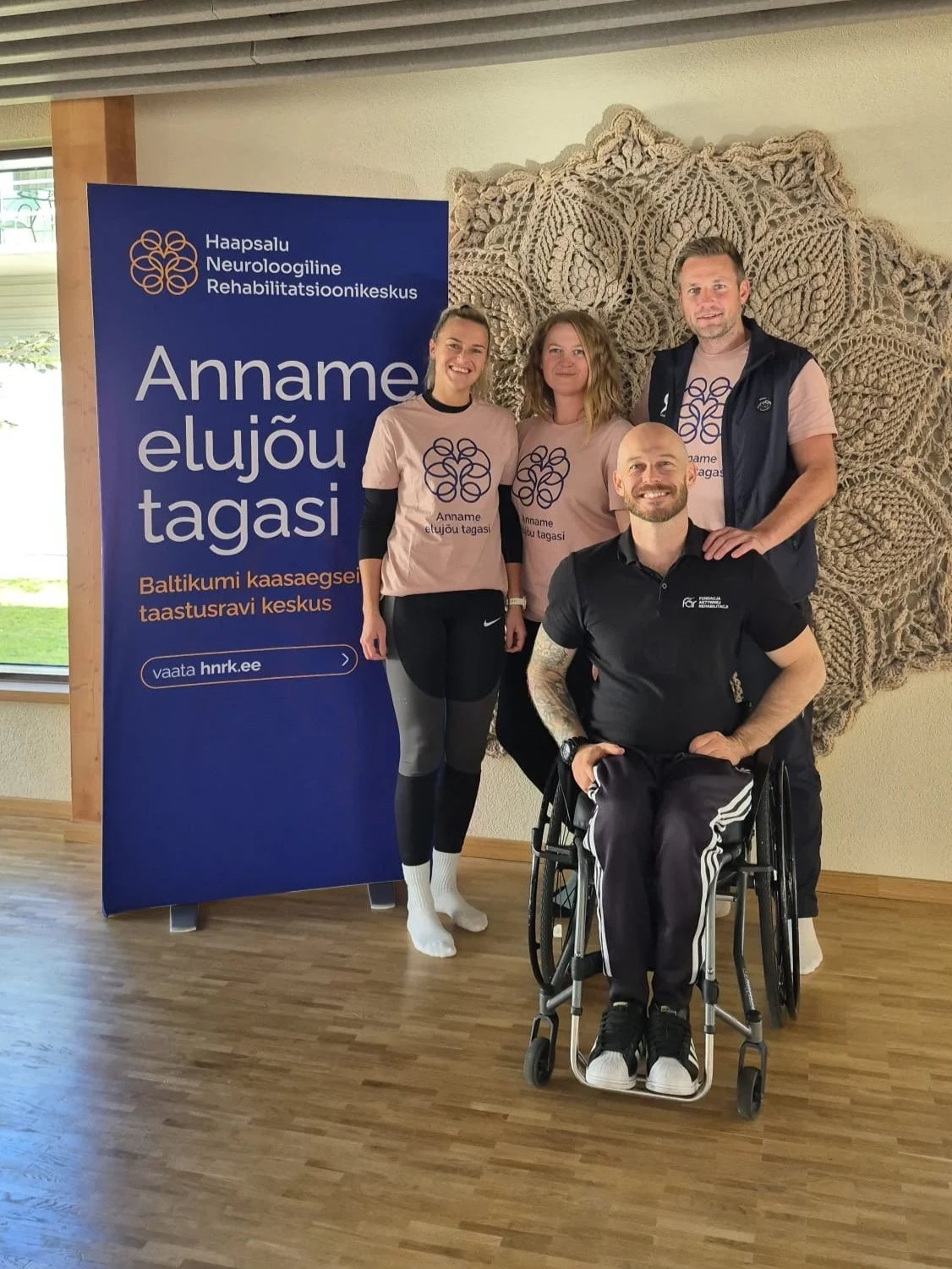First Active Rehabilitation Camp for People with Spinal Cord Injury in Estonia
In september, Haapsalu Neuroloogiline Rehabilitatsioonikeskus (HNRK) is organizing the very first camp in Estonia based on the model of Active Rehabilitation. The initiative is a direct result of the establishment of Active Rehabilitation International (ARI) and the collaboration within the network.
Background and process
One and a half years ago, HNRK was invited to the ARI network meeting in Stockholm. Occupational therapist Siiri Siimenson and physiotherapist Siret Kalbus attended on behalf of director Kadri Englas. They had limited information about the meeting in advance but returned with great enthusiasm and motivation to establish Active Rehabilitation in Estonia. HNRK quickly joined the initiative, allocating funds in its budget to develop the program. The center aims to include Active Rehabilitation as part of its follow-up services for people with spinal cord injuries in Estonia.
Over the past 1.5 years, representatives from HNRK have participated in several international camps and courses:
Siiri (leader/observer) and Indrek (participant and future mentor) joined a camp with RG in Sweden.
Siret participated as leader/observer at a camp with FAR in Poland.
Siiri and Siret took part as leaders at the first ARI camp in Greece, bringing along two participants intended to become mentors in Estonia.
All three designated peer mentors, together with Siiri and Siret, attended an introductory course for peer mentor training in Latvia (led by Sunnaasstiftelsen).
Implementation of the camp
The camp in Estonia is the first national gathering of its kind directly emerging from the ARI network. HNRK systematically combined experiences from courses and camps in various countries and developed a comprehensive program. Activities include:
Wheelchair skills
Transfer training
Strength training
Introduction to tennis, basketball, and shooting
Kayaking as an introduction to outdoor activities
Trial use of various assistive devices
City excursion with focus on practical skill training
Organization and staffing
The camp is led by Siiri and Siret.
Six peer mentors: three from Estonia who have completed the introductory course, as well as experienced mentors from Poland and Latvia.
A nurse and care assistant from HNRK.
Eight physiotherapy students as volunteers, recruited through collaboration with Tallinn Health Care College and the universities of Tallinn and Tartu.
Participants
12 participants were recruited through applications and local outreach, with the aim of training more future mentors. The participant group consists of:
8 people with paraplegia and 4 with tetraplegia
10 men and 2 women
Individuals with injuries ranging from one year to over thirty years ago
Despite wide variations in functional level and experience, all participants have, in just a few days, experienced increased motivation and gained new skills that can contribute to greater independence and a more active daily life.
Summary
The effort HNRK has put into establishing the first AR camp in Estonia appears both targeted and impressive. This work demonstrates how models and experiences from the ARI network can be transferred to new countries. The camp serves as a model for others who wish to develop similar programs. The work of Siiri, Siret, and the HNRK team reflects strong commitment to enabling active lives for people with disabilities.

